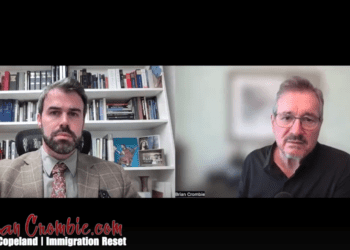 Ottawa needs to take steps during next week’s fiscal update to ensure deficits don’t become an every day part of Canada’s fiscal framework, writes Sean Speer. The government should instead develop a clear set of principles for “why” and “when” stimulus spending is acceptable.
Ottawa needs to take steps during next week’s fiscal update to ensure deficits don’t become an every day part of Canada’s fiscal framework, writes Sean Speer. The government should instead develop a clear set of principles for “why” and “when” stimulus spending is acceptable.
By Sean Speer, Oct. 28, 2016
Finance Minister Bill Morneau will soon release the government’s Fall Economic Statement and the expectation is for more stimulus spending and higher deficits. The surrounding debate in Ottawa has been mostly focused on “how” and “what” of deficit spending and insufficiently on “why” and “when.” One increasingly gets the sense that theory and evidence are being subordinated by an impulse to borrow and spend.
The risk is that the adjective “extraordinary” is dropped from our conception of fiscal stimulus altogether and budgetary deficits are once again normalized. Outlays exceeding revenues becomes the default instead of the exception. Real trade-offs between the short- and long-term are neglected. And we end up with more red ink and little to show for it save for more debt and higher taxes over the long-term.
The government’s update is bound to show deteriorating economic conditions and in turn a worsening fiscal picture. New estimates from TD Economics cut economic growth by $148 billion over the next five years and anticipate another $23 billion in accumulated federal deficits over same timeframe. Yet this disappointing news has done seemingly nothing to diminish Ottawa’s proclivity for stimulus spending.
Quite the contrary. Reports are the government is now committed to using even larger budgetary deficits to stimulate economic growth. Fortunately for the minister there’s no shortage of ideas about how and on what he should be spending. Attend a pre-budget consultation of the parliamentary finance committee and one will hear countless ideas for new spending based on “economic impact” analysis and the power of the multiplier effect. Just “invest” in company X or industry Y and the rate of return will be three-, four-, five-fold, or more. If only it were that easy.
One increasingly gets the sense that theory and evidence are being subordinated by an impulse to borrow and spend.
This focus on how and on what Ottawa should spend subverts more fundamental questions about why and when deficit spending is an appropriate fiscal policy response.
Short-term stimulus spending is far from costless. A large body of economic research shows that there are long-term costs that should be weighed against possible short-term gains. We may make the judgement that it’s worth it to reduce future generations’ prosperity somewhat to mitigate economic hardship present today. But we need to recognize that this is what we’re doing.
There’s no “free lunch” in other words. That’s why fiscal stimulus should be “extraordinary.” The onus should be on those who advocate for deficit financing to make the case that the trade-offs are worth it and that the long-term risks will be minimized.
There’s been no such debate here in Canada. The tension between short- and long-term objectives has been minified. “Strategic investments” by the government have become the answer to the country’s challenges. The multiplier will solve everything, including Ottawa’s rising and protracted budgetary deficit. If only it were that easy indeed.
As part of his economic and fiscal update, Minister Morneau should codify a clear set of principles to guide Ottawa’s fiscal policy. These so-called “fiscal rules” would focus on the “why” and when” of stimulus spending and incorporate clear benchmarks for eliminating the current budgetary deficit.
The test should focus on the national economy rather than regional differences, and a sustained downturn rather than a short-term economic adjustment. Slowed growth is different from a major economic contraction as we experienced in 2008 and 2009, and the fiscal policy response should therefore be different. Calls for more fiscal stimulus every time global markets fluctuate or growth projections are revised downward risks intellectualizing irresponsibility.
The onus should be on those who advocate for deficit financing to make the case that the trade-offs are worth it and that the long-term risks will be minimized.
The goal should be to restore the baseline assumption that the government should impose the taxes needed to pay for services it proposes to provide. Deviations from this baseline can be permitted where circumstances warrant but the onus should then be on the government to justify its decision and plan for returning to balance as soon as practical. “Extraordinary” should mean extraordinary.
Such fiscal rules would not help the government manage short- and long-term trade-offs, they can support the role of Parliament in scrutinizing fiscal policy in general and specific spending proposals in particular. New spending can be weighed against current spending and the relative merits can be judged. The budget process can thus become less transactional and more focused on big-picture questions about the long-term conditions for economic growth and rising living standards.
Minister Morneau’s upcoming Fall Economic Statement represents an opportunity to shift the current fiscal policy debate from dollars to sense. It’s time to get back to basics.
Sean Speer is a Munk senior fellow at the Macdonald-Laurier Institute.




